The Fruit Fly Store
Melanogaster (Turkish Glider) LIVE Fruit Fly Culture - Free Shipping!
Melanogaster (Turkish Glider) LIVE Fruit Fly Culture - Free Shipping!
5.0 / 5.0
(1) 1 total reviews
Couldn't load pickup availability
Buy Drosophila melanogaster (Turkish Glider) Fruit Fly Cultures - Premium Feeder Insects for Reptiles & Amphibians
Enhance your pet’s diet with the exceptional nutrition of Drosophila melanogaster (Turkish Glider) fruit fly cultures. This unique strain, known for its gliding movement and high nutritional value, is an ideal feeder insect for small reptiles, amphibians, and other insectivores. Whether you’re feeding dart frogs, baby chameleons, or mantises, the Turkish Glider fruit flies offer a stimulating prey that encourages natural hunting behaviors in your pets.
Why Choose Drosophila melanogaster (Turkish Glider) Fruit Flies?
- Unique Gliding Behavior: The Turkish Glider strain of Drosophila melanogaster is named for its distinctive ability to glide. Unlike typical flightless or wingless fruit flies, Turkish Gliders possess wings that allow them to perform controlled gliding movements. This gliding is due to a combination of slightly reduced wing size and altered wing musculature, which limits their ability to achieve sustained flight but enables them to glide short distances. This behavior adds an element of challenge and enrichment for your insectivores, encouraging their natural hunting instincts.
- Nutrient-Rich and Balanced: Our Turkish Glider fruit flies are raised on a carefully formulated, nutrient-rich medium, providing a balanced, high-protein diet that supports the health and growth of your reptiles and amphibians.
- Ideal for Small Pets: With their small size and active movement, Drosophila melanogaster (Turkish Glider) fruit flies are perfect for feeding dart frogs, baby chameleons, mantises, and other small insectivores that thrive on smaller prey.
- Rapid Reproduction: These cultures reproduce quickly, ensuring a fresh supply is always available.
Understanding the Gliding Mechanism in Drosophila melanogaster (Turkish Glider)
The Turkish Glider strain exhibits a fascinating gliding behavior due to specific adaptations in their wing structure and musculature. While they possess wings, these flies are not capable of sustained flight like their wild-type counterparts. Instead, their slightly reduced wing size and altered wing muscles allow them to glide short distances. This gliding ability serves as a unique challenge for insectivores, making feeding time more engaging and stimulating for your pets.
Perfect for Feeding:
- Dart Frogs
- Baby Chameleons
- Small Mantises
- Jumping Spiders
- Micro Geckos
- Small Lizards and More!
Order Your Drosophila melanogaster (Turkish Glider) Fruit Fly Cultures Today!
Enhance your pet’s diet with the unique and highly nutritious Drosophila melanogaster (Turkish Glider) fruit fly cultures. Ready to ship, these cultures offer a consistent and easy-to-handle feeder insect that will keep your pets healthy and satisfied. Order now and enjoy fast shipping and our live arrival guarantee!
Turkish Glider Melanogaster
Drosophila melanogaster 'Turkish Glider'
- Turkish Glider Melanogaster are the smallest size of fruit flies at 1/16"
- Turkish Glider Melanogaster are a winged and slightly darker than the Golden or Common Wingless Melanogaster
- This winged form of melanogaster can 'glide' short distances making for a more active feeder enticing even the pickiest of eaters
- Turkish Gliders produce fast and consistently with cultures producing every 1-2 weeks depending on temperature
- Cultures should be kept between 70°F - 80°F. Under 70° cultures will start to slow down and not reproduce. Above 80° cultures could develop the ability to fly
- Cultures will begin producing in about 2 weeks
Share
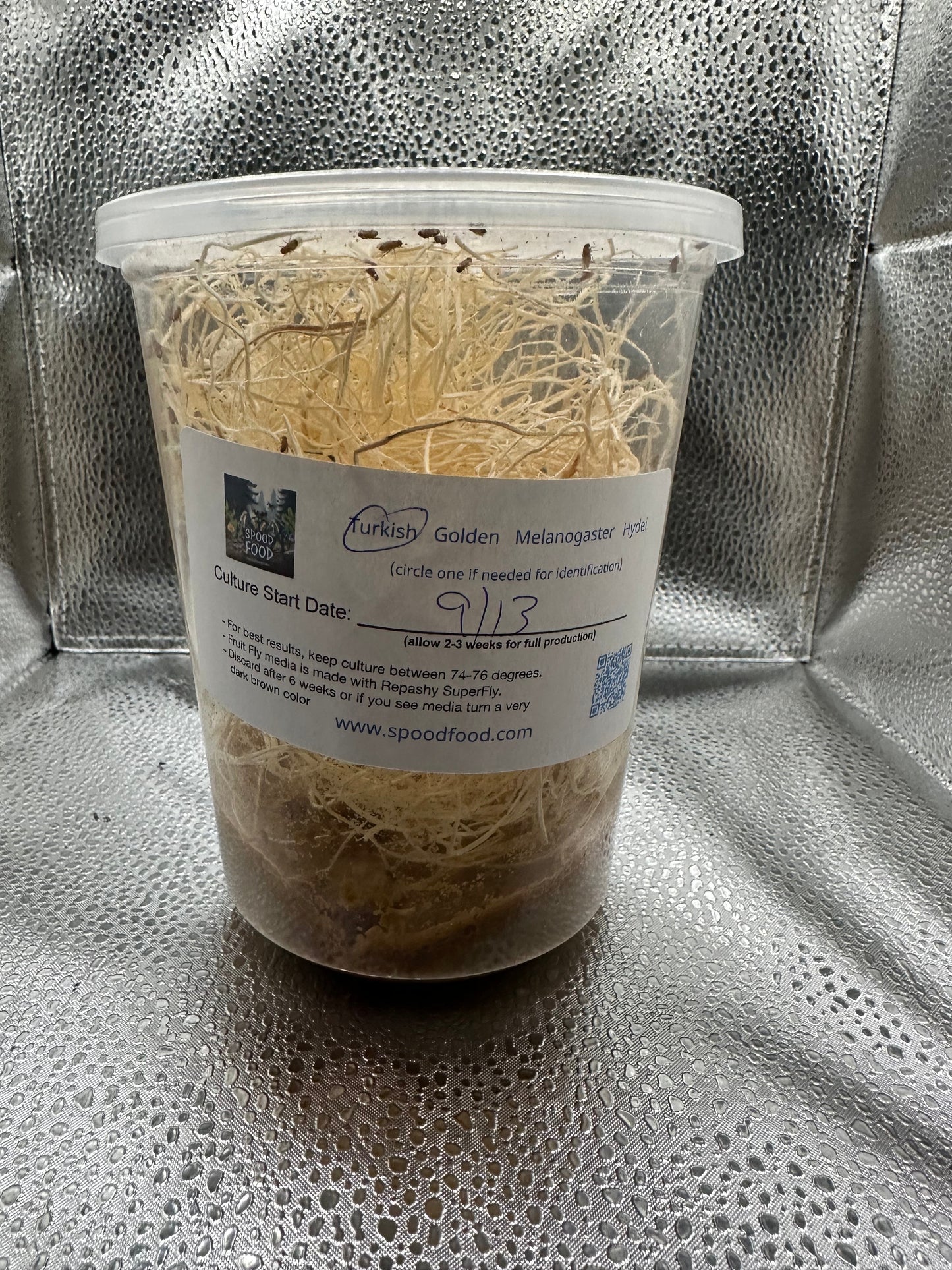
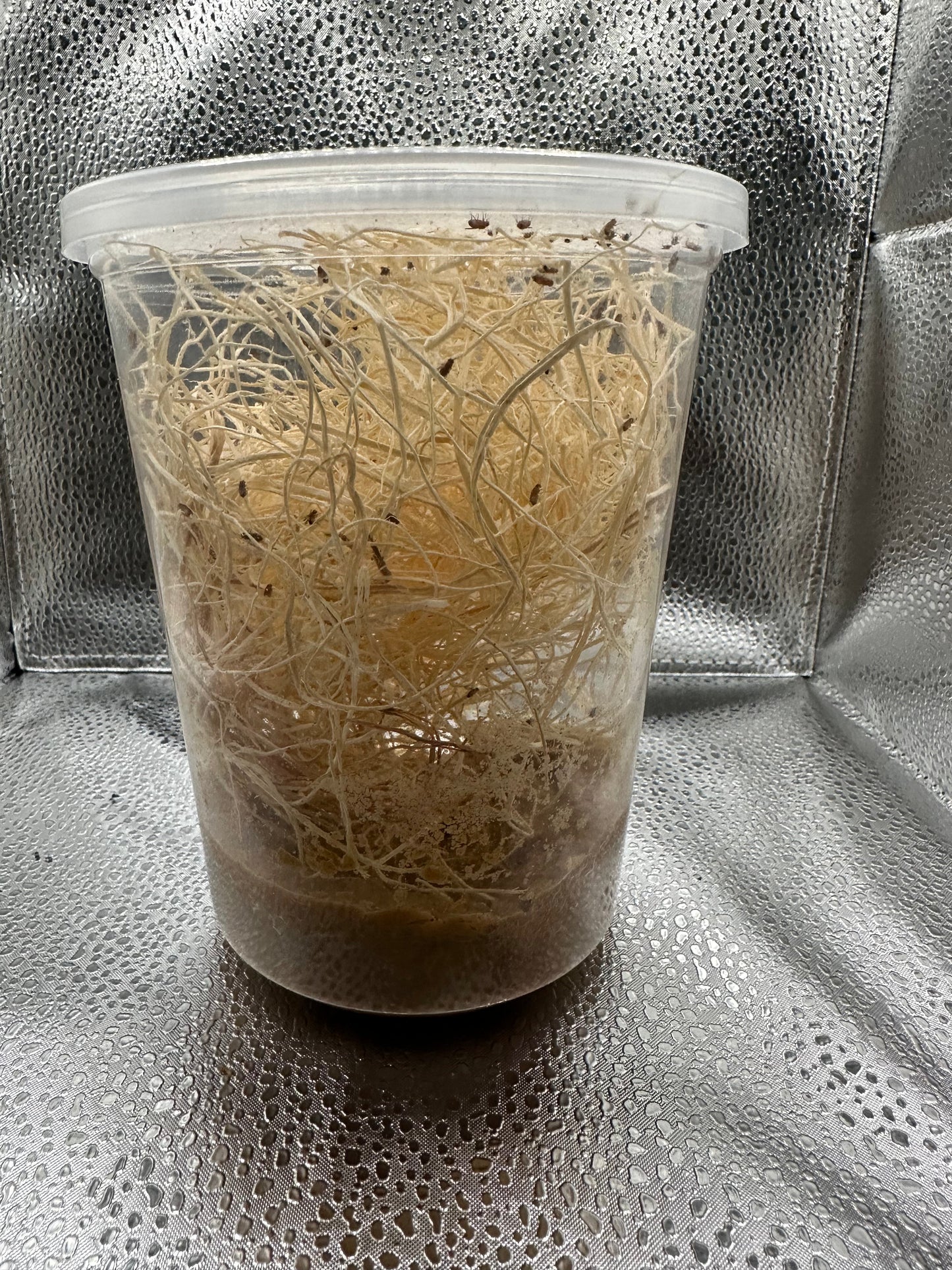
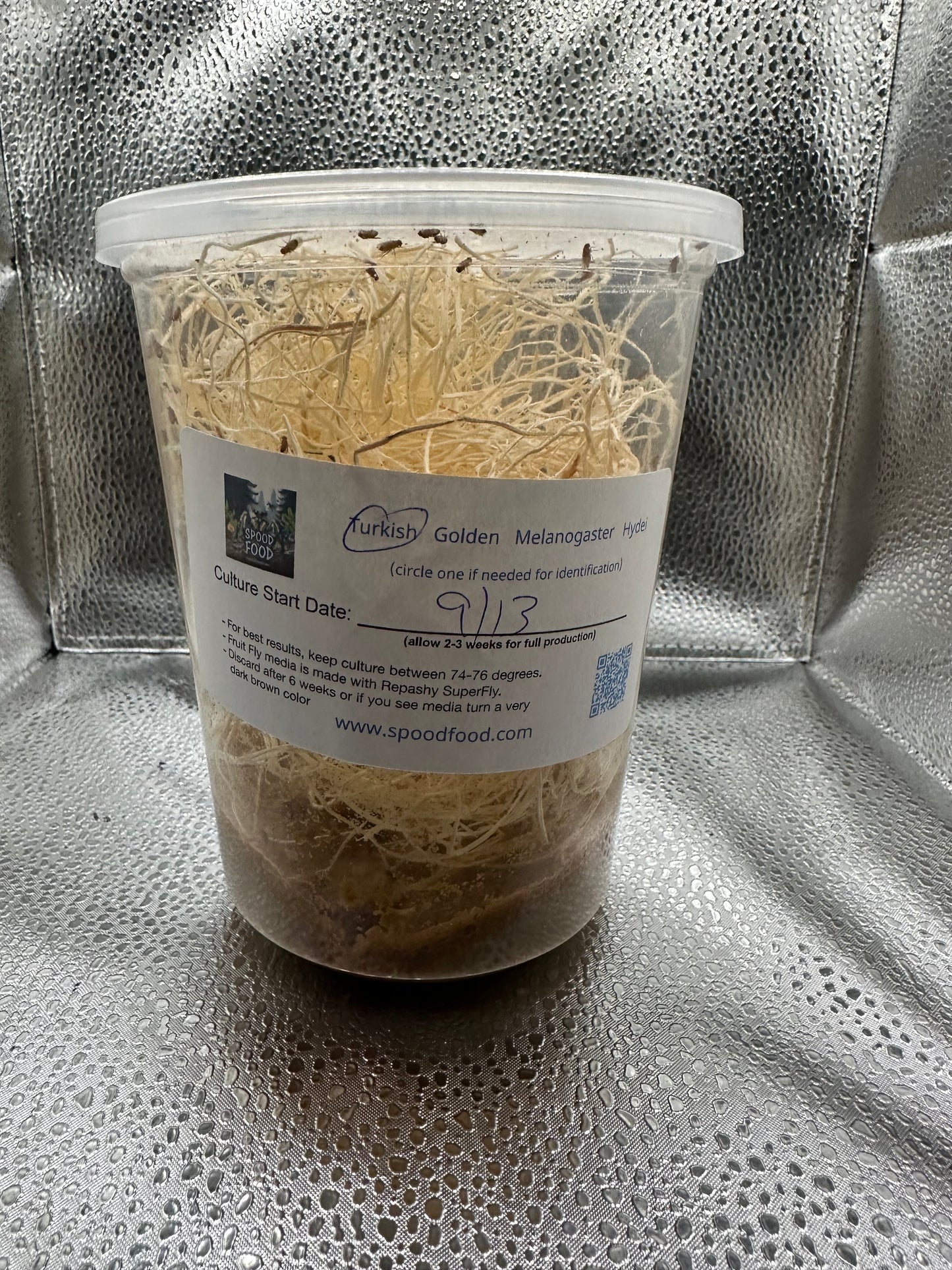
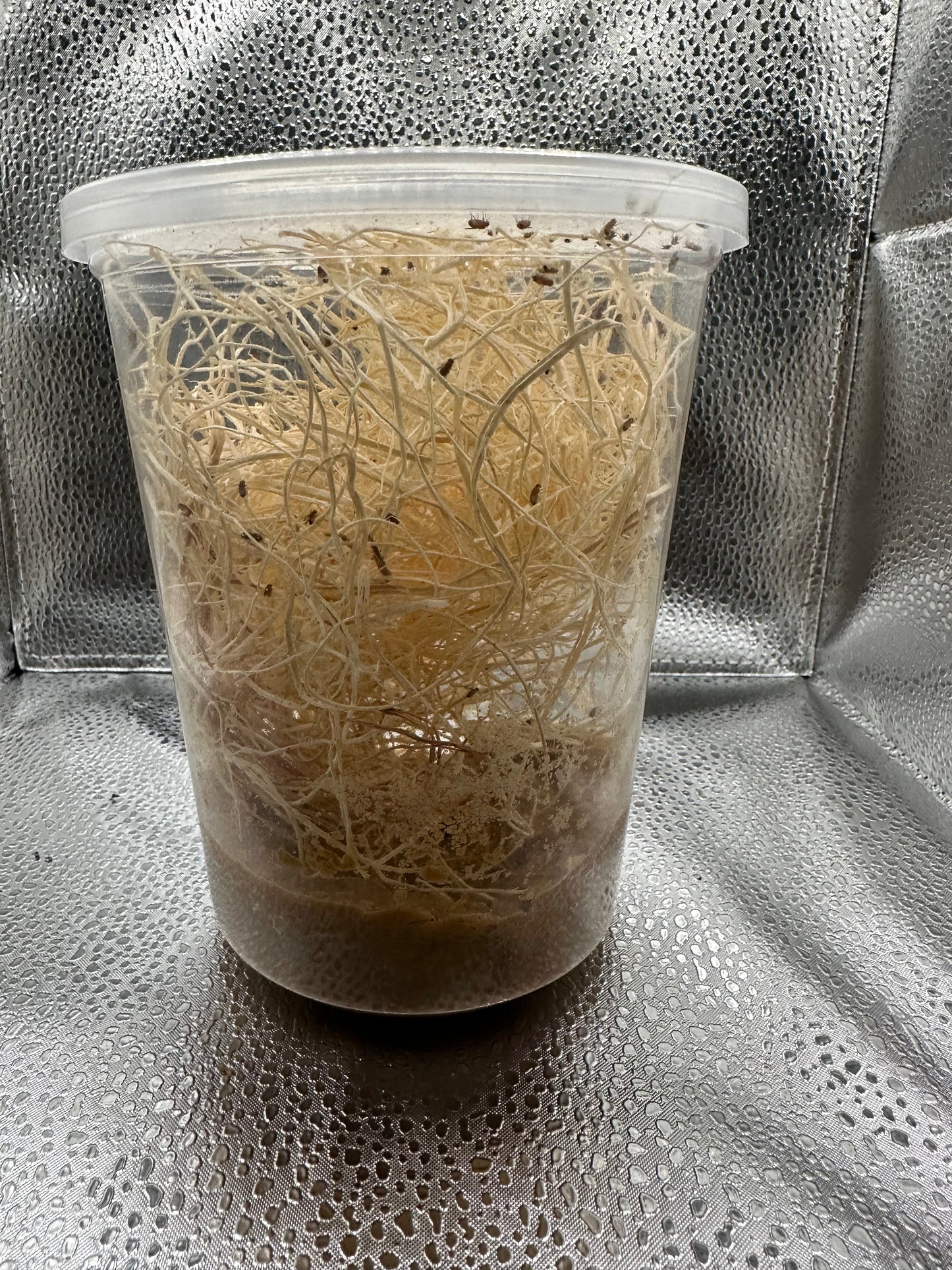
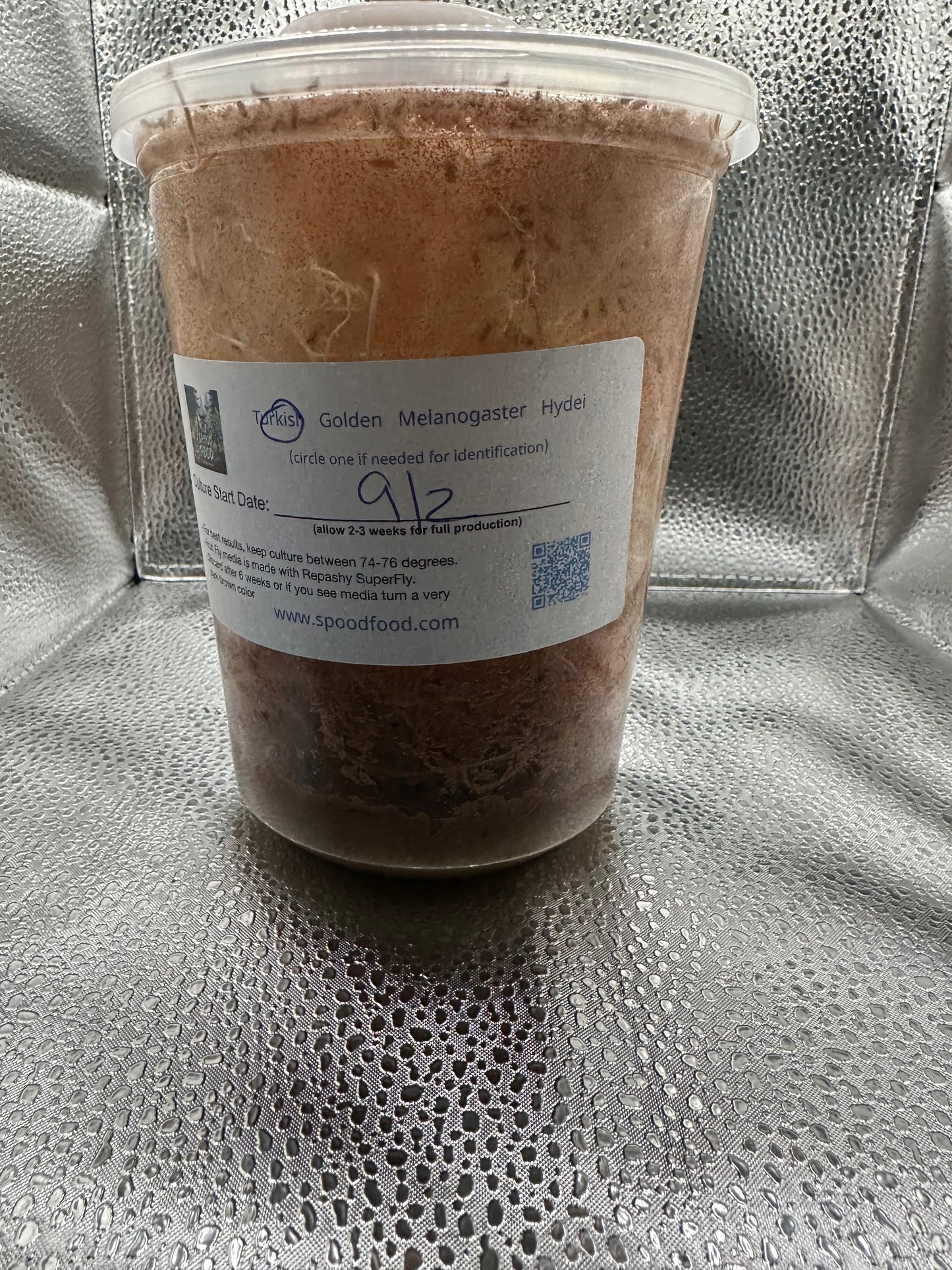
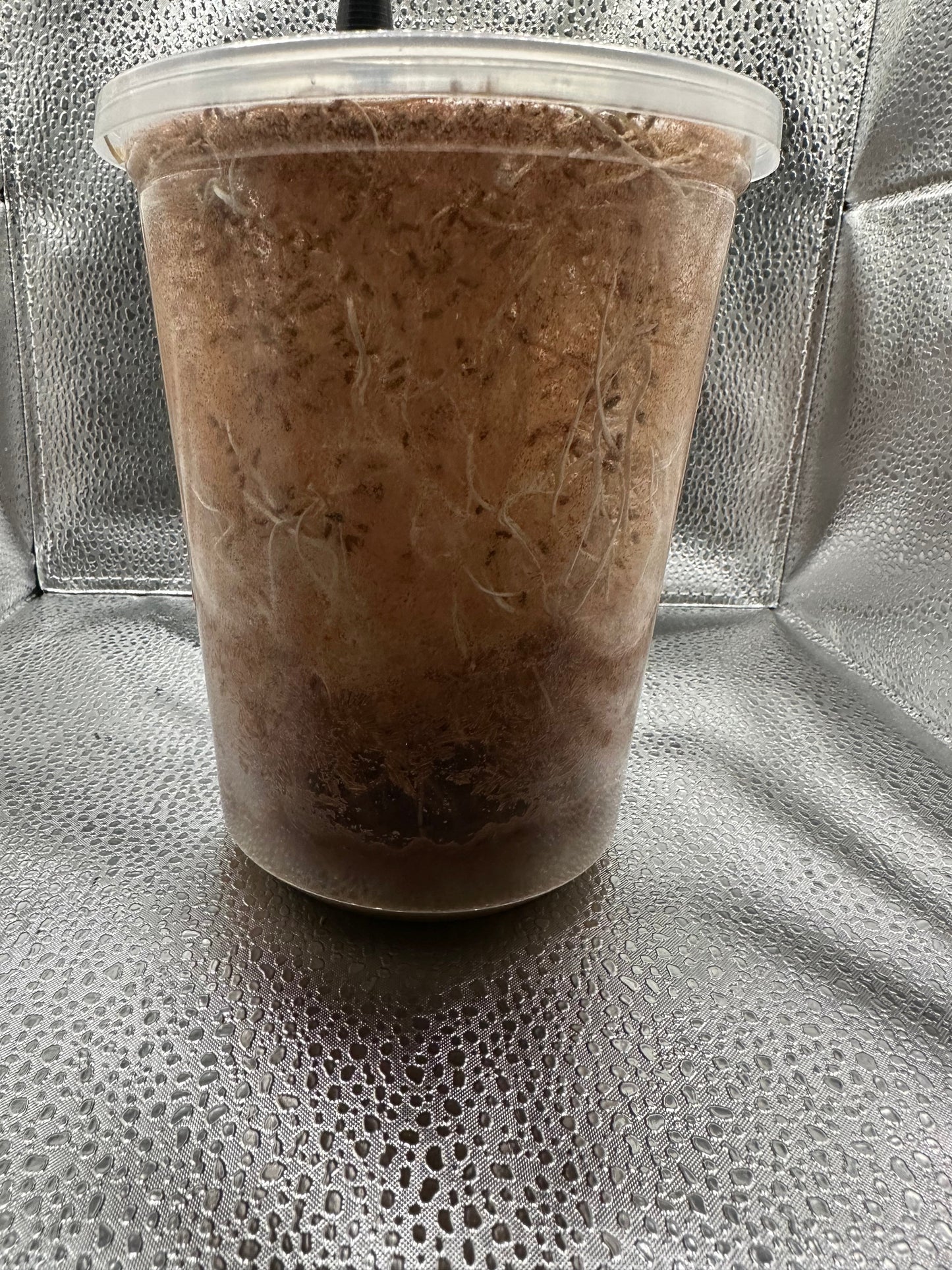
Always perfect!! Owner goes above and beyond for their customers.







